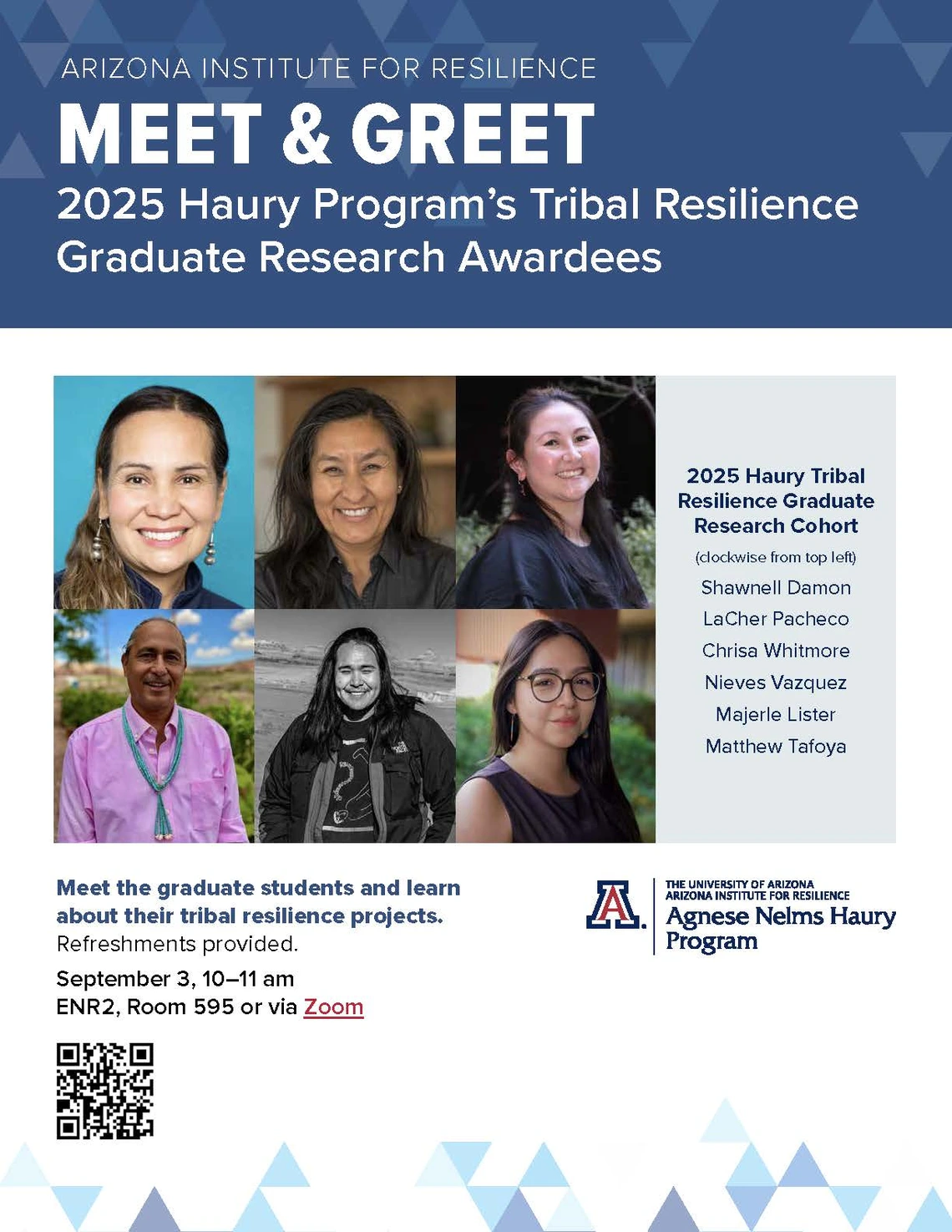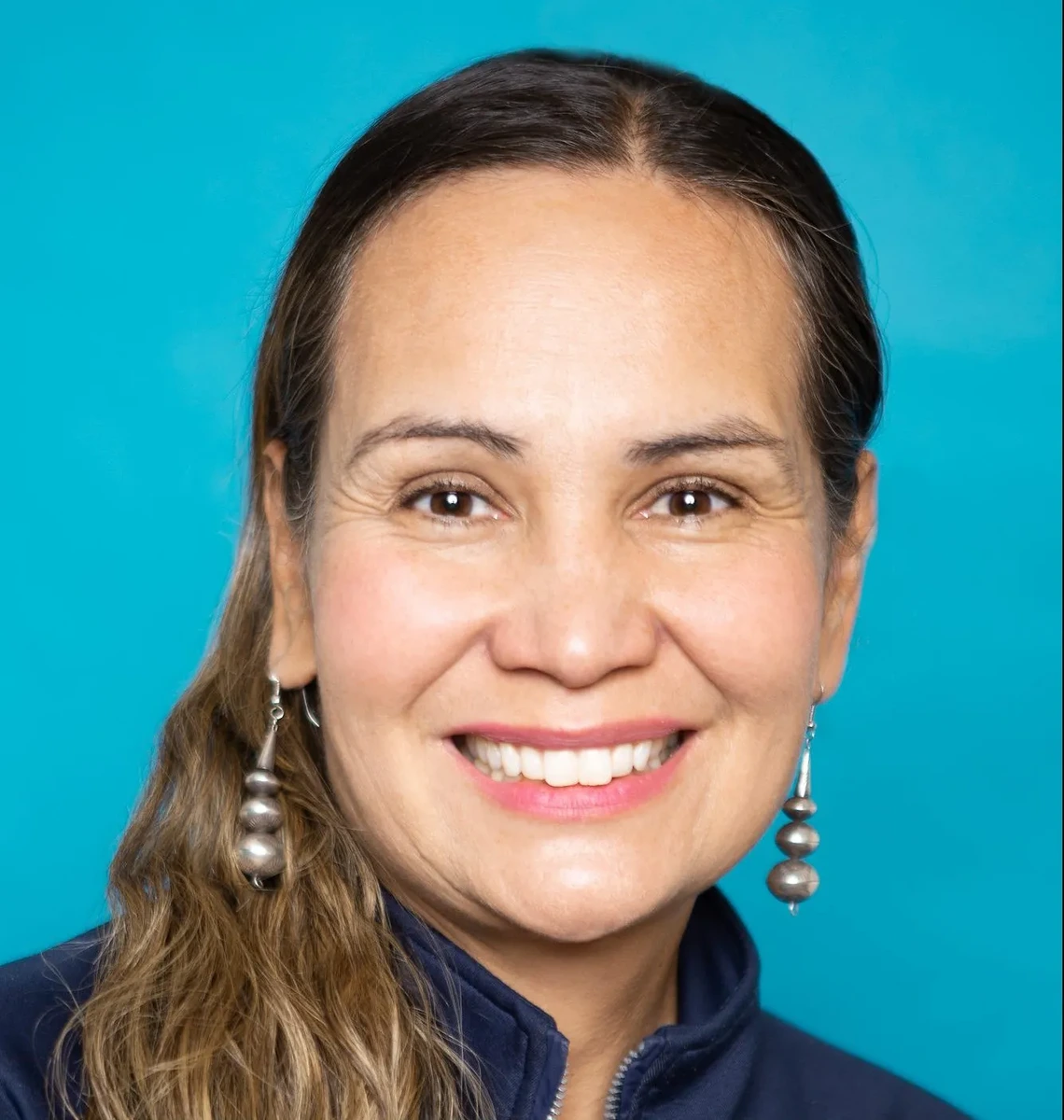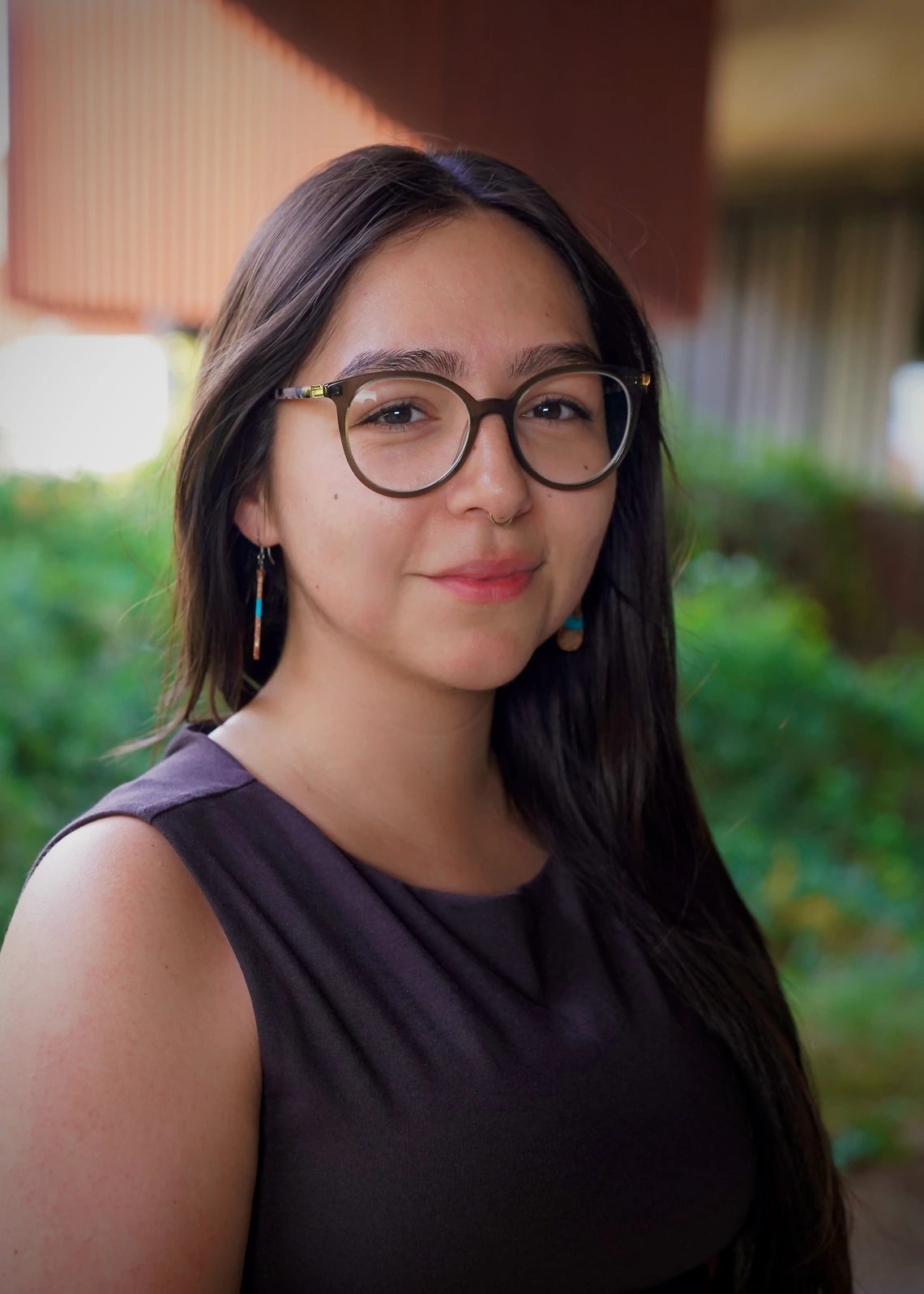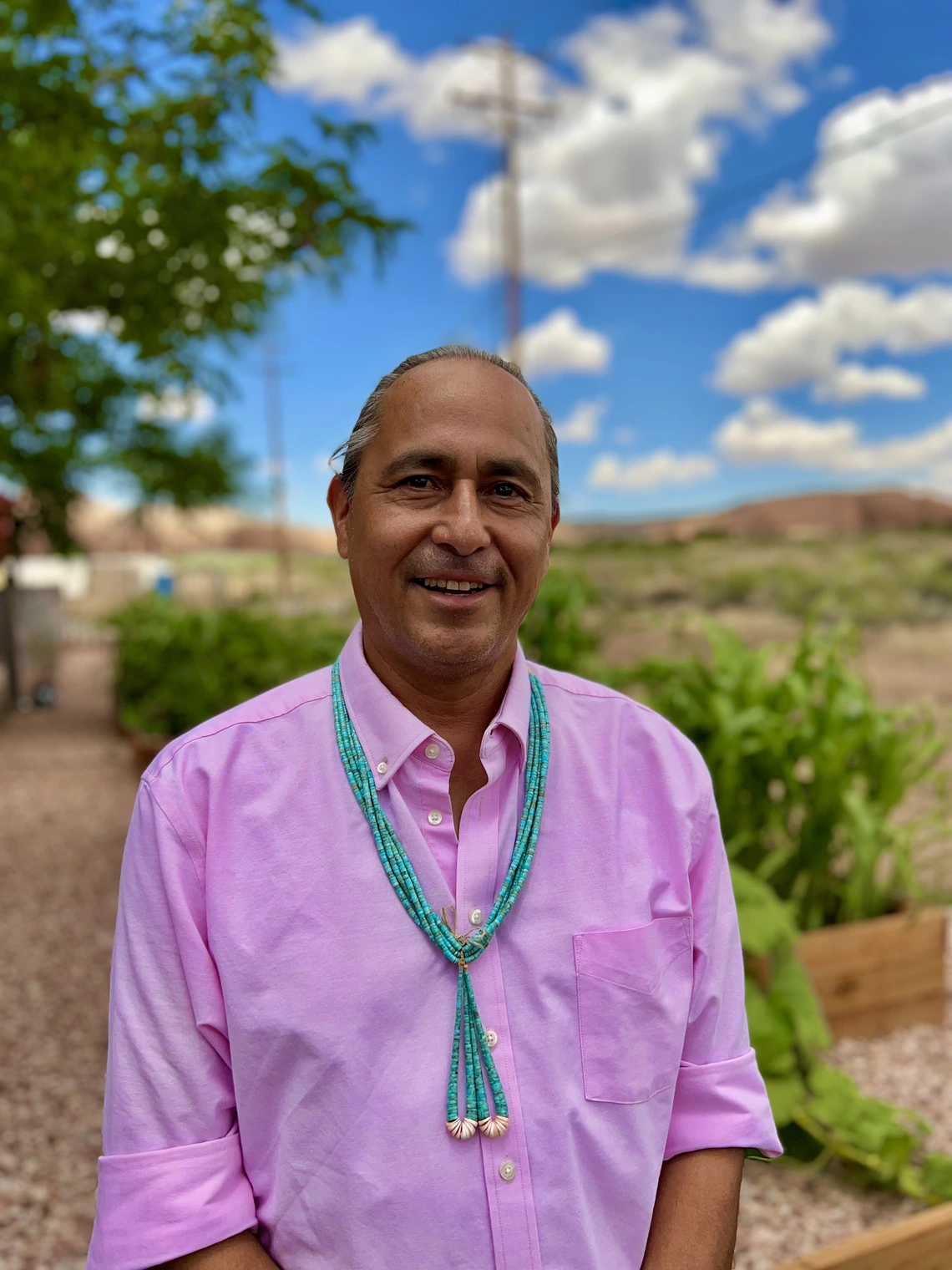Haury Program Awards Six 2025 Tribal Resilience Graduate Research Awards to Support Academic Pathways and University-Community Collaborations
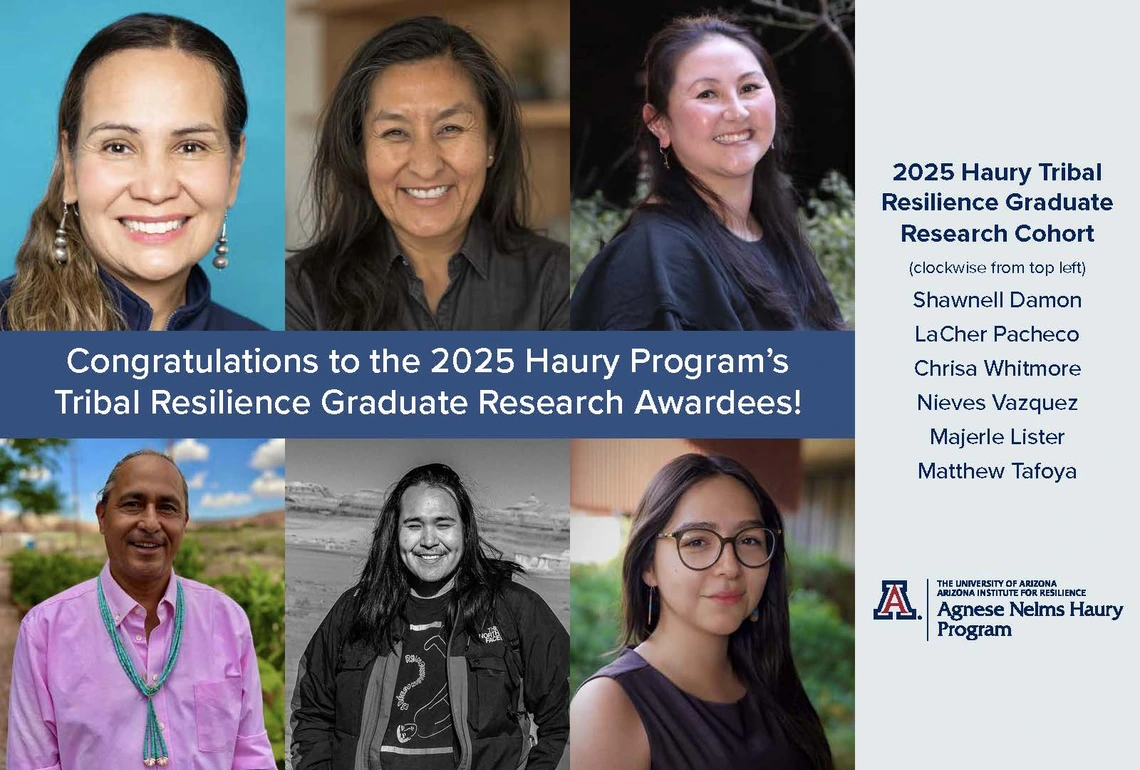
The Agnese Nelms Haury Program (Haury Program) is a unique University-embedded philanthropy created by a major bequest in 2014 to honor the life and work of Mrs. Agnese Nelms Haury. The Tribal Resilience Graduate Research Awards program was designed in 2021 to strengthen the academic pathways at the University of Arizona for Native American and Indigenous Resilience students and scholars. “We are delighted to announce this year’s Haury Program Graduate Research Awards,” shared Toni Massaro, Haury Program Director. “All of the grantees are committed to using their advanced training here to advance tribal environmental resilience goals with skill and respect. Few things make us prouder to be part of the UA team that shares these goals, and to use our resources to support them.”
The 2025 awardees are Shawnell Damon, LaCher Pacheco, Chrisa Whitmore, Nieves Vázquez, Majerle Lister, and Matthew Tafoya. Their graduate research projects address a wide range of Indigenous Resilience topics relevant to water, energy and food. Five of the projects are taking place on or close to the Navajo Nation, and include studies of the intersection between the Covid 19 vaccine uptake and water security, water quality, impacts of frozen land tenure, access to healthy foods and storytelling in picture books. The sixth project is tackling a more general subject of science communication in water and soil quality research. The graduate students are pursuing graduate studies across the campus, i.e. at the Zuckerman College of Public Health, College of Education, Department of Environmental Science, College of Agriculture, Life & Environmental Sciences, School of Geography, and Department of American Indian Studies.
Nancy Petersen, Haury Program Assistant Director added: “This is our fifth year supporting graduate students in the research stage of their journey at University of Arizona. What started as a means to recruit students with an interest in tribal climate resilience, these award have become a hallmark of the Haury Program. We are grateful to learn alongside such talented students, improving practices for universities collaborating with community to address our most serious challenges.”
Below are more details on each of the 2025 awardees and their graduate research projects:
The 2025 cohort of awardees is joining the twenty two awardees from previous four years. To view the map of all projects funded, click here. One of the 2023 awardees, Ms. Nizhoni Tallas, (Dine), UA School of Natural Resources and the Environment Master’s Program student, spoke to significance of Haury awards in expanding Indigenous Resilience research and more:
“The Haury award significantly enhanced my abilities by providing crucial support that allowed me to bring my community together, develop new skills, and gain professional exposure. With the award, I was able to focus on building relationships within my home community of Rough Rock, ensuring that outdoor activities like disc golf were accessible, and promoting community well-being. A key aspect of the award’s impact was the opportunity it gave me to strengthen my people skills. Organizing events such as Outdoor Day helped me develop confidence in my ability to work with local leadership and community members. Through these events, I was able to make outdoor activities more accessible, particularly for the youth. Since the nearest disc golf course is hours away, introducing the community to this activity sparked interest in potentially investing in a permanent course. This could have a lasting impact on Rough Rock, encouraging more outdoor engagement and healthier lifestyles. Additionally, the Haury award’s support extended to my professional development by enabling me to attend the World Social Science Conference. Presenting updates on my community work and sharing my master’s research allowed me to connect with professionals who are also focused on uplifting their communities. These connections helped broaden my understanding of community-based research and inspired me to continue advocating for Indigenous self-determination and resilience. The Haury award not only empowered me to create meaningful change in my community but also provided me with valuable opportunities for professional growth and connection with like-minded individuals. This combination of community engagement and academic exposure will have a lasting impact on both my work and the Rough Rock community.”
For more information on past awardees and their projects, please visit Tribal Resilience Graduate Research Awards website.
And if you would like to meet the 2025 awardees and learn more about their projects, please join us on September 3rd, 2025, at 10 a.m. at the UArizona Arizona Institute for Resilience at ENR2 Building, Room 595 or via Zoom.
